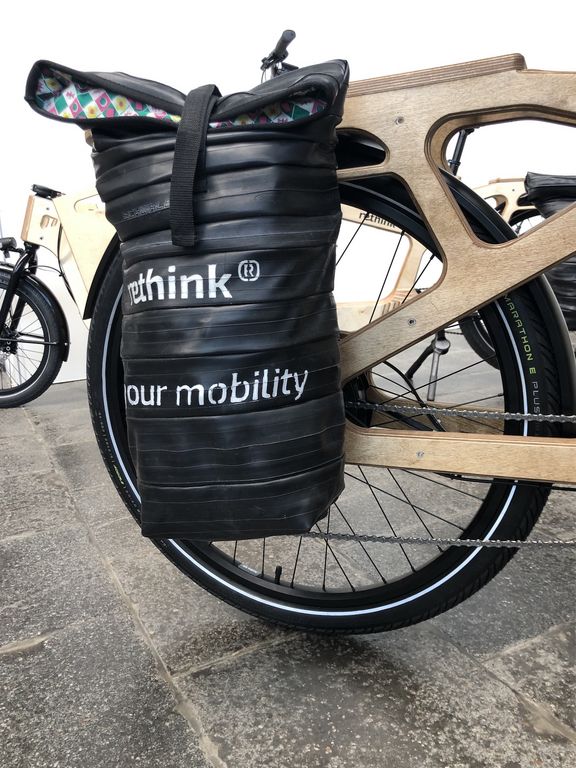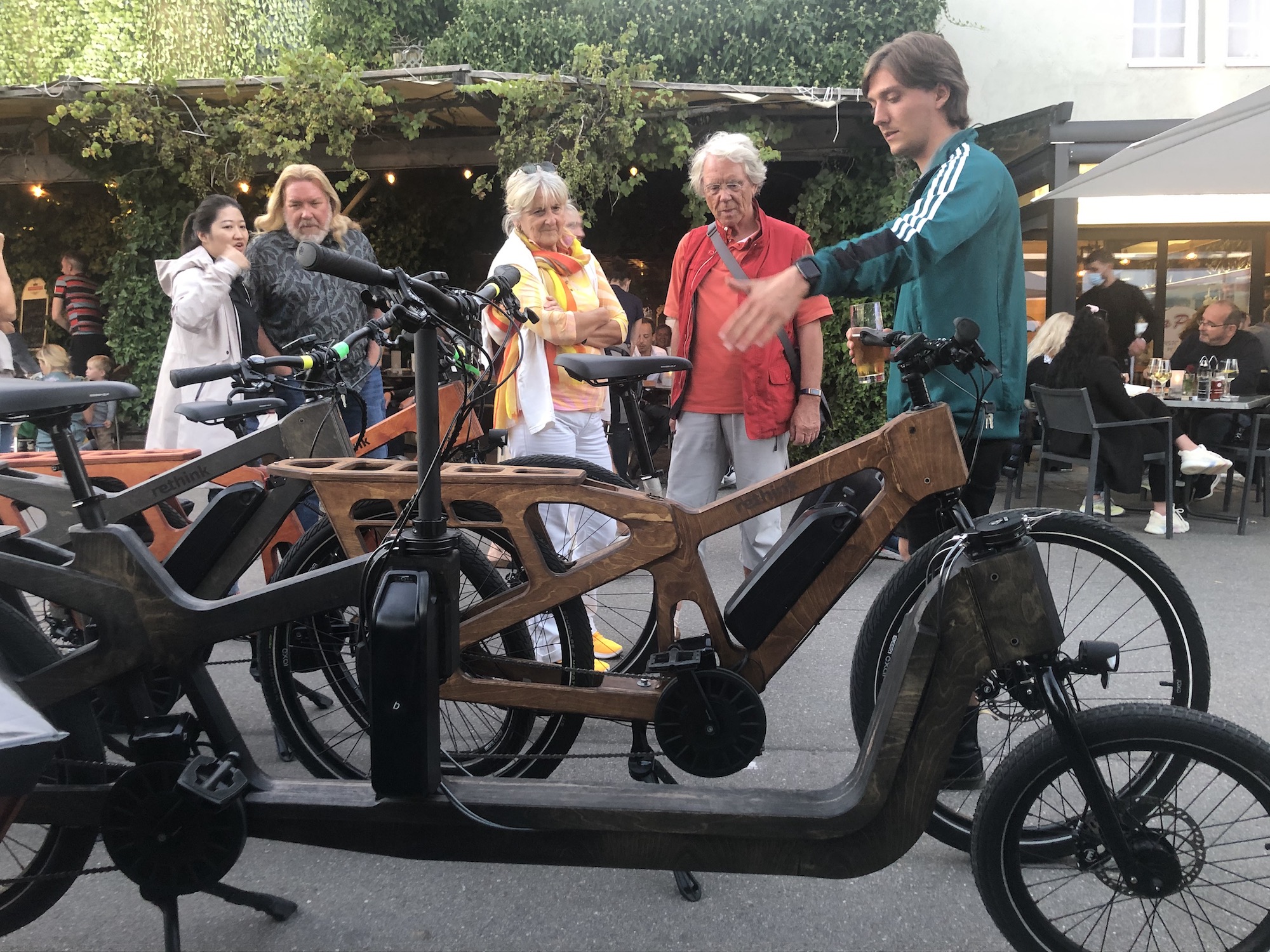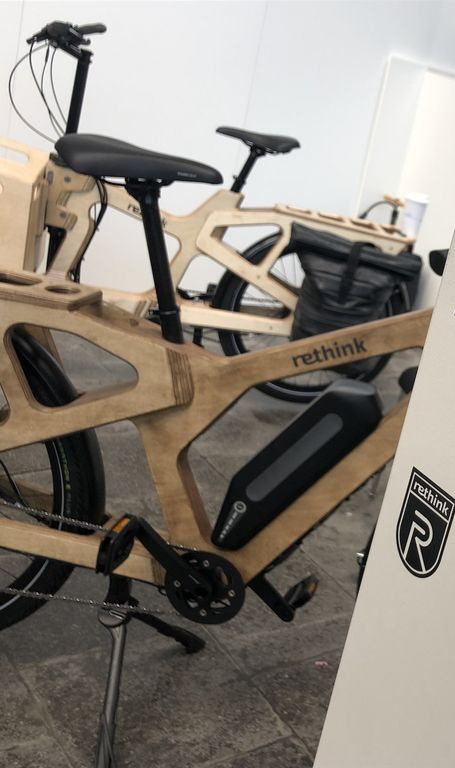In all honesty, practically anyone who rides a bike has secretly wished for a tailwind available on demand. From headwinds to steep climbs, there are a number of places where a person could just use a little boost. The German e-bike market is growing like hardly any other. According to the German Federal Statistical Office, the number of e-bikes in private German households rose by 1.2 million in 2021, to 7.1 million. That means that in statistical terms, about one in eight German households has at least one electric bike. And the current surge in fuel prices is sure to further boost sales of e-bikes, too.
The company took the plunge in 2018, establishing rethink®, its own brand of e-bikes. Full pedelecs have been marketed under this label since March of 2018. Today, the eight-person Binova GmbH team has become especially well-known for crafting what they call the world’s most sustainable cargo bikes. All of the frames are made of wood, and exclusively ecological materials are used. Söhner’s credo is that anyone can be a part of the shift in mobility. We caught up with the company founder to talk about his mission and gained amazing insight into the company’s success story – a story that is smart and also typical of Saxony, in a way.

What was the response like at the start, and what kind of demand are you seeing today – especially as you’re always competing with the alternative of simply buying an e-bike?
We won the design award for our drive at Europe’s biggest bike fair in 2013. Our binova flow® drive had no competitors at the time. Unlike other e-motors, it is silent and low-wearing, and it offers a natural riding feel even with the strong boost it provides, plus it can be installed on almost any bike frame. We’re still a small manufacturer, and these days, with difficulty in the battery and electronics supply chains, we've scaled back on our aftermarket activities and are instead focusing on our rethink® brand of bikes.

You’ve also added cargo bikes to your product range these days – wooden cargo bikes, to be exact. How important is sustainability to you?
Where are your cargo bikes made? What materials do you use?
I’ve realized my childhood dream of having my own little wood shop. We mill the frames here, using plywood panels produced sustainably. We also oil them in-house. The varnished versions come from a partner in Dresden.
Amid the pandemic, the past two years have brought a major upturn in the bicycle industry. Has Binova benefited, like others?
In principle, yes. But we’ve seen our delivery times stretch to as much as 18 months since the first lockdown. On top of that, we’re a small producer without much power on the market, and our frame delivery was postponed by nine months in early 2021. That more or less forced us to focus entirely on developing our wood project – the wooden frame – so that we would have something to ship in 2022. We pulled it off, too.
Which countries do you sell your products in?

You’ll be unveiling the world’s first sustainable cargo bikes made from wood at this year’s Eurobike in July. What exactly makes them so unique?
There have been mountain bikes and city bikes made of wood since 2015. And there have been individual cargo bikes made from wood here and there in the past as well. But series-produced wooden cargo bikes, that’s what’s new. The two models we are launching have been successfully tested at the total weights of 180 kg and 215 kg, which are used for comparable steel and aluminum alternatives. And no series manufacturer has ever used as little metal as us in wooden bikes. That makes our production unbeatable in terms of sustainability, since the amount of energy used when items are made with metal is much higher than with wood as a material.
One last question: What drives you personally? What’s your company philosophy?
Working together with a diverse group of people to create something that makes sense. Being part of the mobility transition. And, through it all, never losing sight of our mission of offering climate-neutral means of transportation for 99 percent of all everyday and recreation situations in the area.

Binova
binova has the solution for anyone who has ever secretly wished for a tailwind on demand.
more
